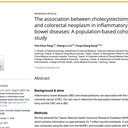Français
Albanian
Arabic
Armenian
Azerbaijani
Belarusian
Bengali
Bosnian
Catalan
Czech
Danish
Deutsch
Dutch
English
Estonian
Finnish
Français
Greek
Haitian Creole
Hebrew
Hindi
Hungarian
Icelandic
Indonesian
Irish
Italian
Japanese
Korean
Latvian
Lithuanian
Macedonian
Mongolian
Norwegian
Persian
Polish
Portuguese
Romanian
Russian
Serbian
Slovak
Slovenian
Spanish
Swahili
Swedish
Turkish
Ukrainian
Vietnamese
Български
中文(简体)
中文(繁體)
JGH Open 2019-Feb
Seuls les utilisateurs enregistrés peuvent traduire des articles
Se connecter S'inscrire
Le lien est enregistré dans le presse-papiers
Results
Of a total of 116 subjects enrolled, there were 43 (37.1%), 13 (11.2%), and 15 (12.9%) cases experiencing HFSR, HTN, and diarrhea, respectively. The cases with AE had both a longer time to progression (TTP) (HFSR 5.16 vs. 3.33 months, P = 0.003; HTN 6.62 vs. 3.68 months, P = 0.001; diarrhea 6.67 vs. 3.61 months, P = 0.001) and overall survival (OS) (HFSR 8.12 vs. 4.75 months, P = 0.001; HTN 9.08 vs. 5.61 months, P = 0.008; diarrhea 8.20 vs. 5.67 months, P = 0.042) than those without. More AEs were correlated with a longer TTP and OS.La base de données d'herbes médicinales la plus complète soutenue par la science
- Fonctionne en 55 langues
- Cures à base de plantes soutenues par la science
- Reconnaissance des herbes par image
- Carte GPS interactive - étiquetez les herbes sur place (à venir)
- Lisez les publications scientifiques liées à votre recherche
- Rechercher les herbes médicinales par leurs effets
- Organisez vos intérêts et restez à jour avec les nouvelles recherches, essais cliniques et brevets
Tapez un symptôme ou une maladie et lisez des informations sur les herbes qui pourraient aider, tapez une herbe et voyez les maladies et symptômes contre lesquels elle est utilisée.
* Toutes les informations sont basées sur des recherches scientifiques publiées





